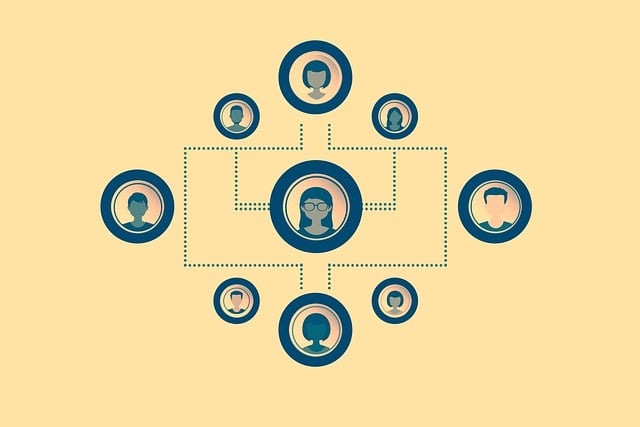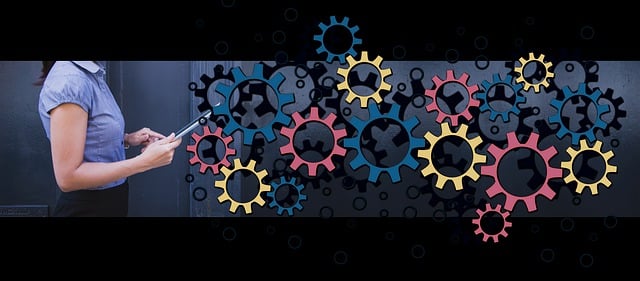Modern employee engagement programs leverage 5S training and lean management principles for exceptional workplace organization and process standardization. This Japanese methodology, comprising sorting, setting in order, cleaning, standardizing, and sustaining, empowers employees to streamline operations, enhance productivity, and boost morale. By integrating these continuous improvement practices, organizations foster a disciplined, collaborative, and engaging work culture, ensuring long-term success and employee satisfaction.
Employee engagement programs are vital for modern workplaces, fostering a vibrant and productive environment. This article explores strategies to enhance employee satisfaction and performance through proven methods like 5S training, lean management, and process standardization. We delve into the transformative power of these initiatives, from improving workplace organization (5S continuous improvement) to streamlining processes with lean principles. By understanding the foundation and measuring success, organizations can create a lasting positive impact on their workforce.
- Understanding Employee Engagement Programs: Their Role in Modern Workplaces
- The Foundation of 5S Training and Its Impact on Workplace Culture
- Lean Management Principles: Streamlining Processes for Improved Efficiency
- Integrating Continuous Improvement: A Key to Sustained Success
- Standardization at the Heart of Process Excellence: Benefits and Implementation
- Measuring Success: Evaluating the Effectiveness of Your Employee Engagement Program
Understanding Employee Engagement Programs: Their Role in Modern Workplaces

Employee engagement programs have become a cornerstone in modern workplaces, aiming to foster a sense of belonging and motivation among staff. These initiatives go beyond traditional incentives, focusing on creating an environment that promotes productivity, innovation, and overall job satisfaction. By integrating practices like 5S training and lean management, organizations can achieve exceptional workplace organization and process standardization.
The 5S continuous improvement methodology, with its emphasis on sorting, setting in order, shining (cleaning), standardizing, and sustaining, is a powerful tool within these programs. It encourages employees to take ownership of their workspace, streamline operations, and maintain a culture of efficiency. This approach aligns with lean management principles, ensuring resources are utilized optimally and waste minimized, ultimately enhancing overall workplace productivity and employee morale.
The Foundation of 5S Training and Its Impact on Workplace Culture

5S Training, a cornerstone of lean management principles, is transforming workplace culture by fostering an environment of order and efficiency. This Japanese methodology focuses on five key elements: Sort, Set in Order, Shine (Clean), Standardize, and Sustain. By implementing 5S continuous improvement practices, organizations achieve optimal workplace organization, streamlining processes and eliminating waste.
The impact extends beyond physical spaces; it cultivates a mindset of continuous improvement among employees. Process standardization becomes second nature as teams work collaboratively to refine workflows, enhance productivity, and create a more engaging atmosphere. This holistic approach not only improves operational efficiency but also boosts employee morale, making it a powerful tool for building a positive and proactive workplace culture.
Lean Management Principles: Streamlining Processes for Improved Efficiency

In today’s competitive business landscape, employee engagement is key to driving success. One effective strategy that aligns with this goal is adopting Lean Management Principles. At its core, Lean management focuses on streamlining processes to enhance efficiency and reduce waste. This methodology draws heavily from the 5S training framework—Sort, Set in Order, Shine, Standardize, Sustain—which serves as a powerful tool for workplace organization. By implementing 5S continuous improvement practices, organizations can create more structured environments that foster better collaboration among employees.
Process standardization, a cornerstone of Lean management, ensures that tasks are carried out consistently and effectively. This not only improves productivity but also empowers employees by providing clarity and purpose in their roles. Engaged workers who understand and embrace standardized processes tend to be more motivated, as they can anticipate and optimize their work flows. As such, integrating 5S training into an employee engagement program can significantly contribute to the overall efficiency, organization, and satisfaction of a workforce.
Integrating Continuous Improvement: A Key to Sustained Success

Integrating Continuous Improvement is a strategic approach that drives sustained success in employee engagement programs. Beyond initial implementation, organizations must embrace a culture of ongoing refinement to stay ahead in today’s competitive landscape. This involves incorporating principles like 5S training and lean management into daily operations. 5S, focusing on Sort, Set in Order, Shine (cleanliness), Standardize, and Sustain, promotes workplace organization and process standardization. By encouraging employees at all levels to identify inefficiencies and make incremental improvements, these methodologies foster a sense of ownership and engagement.
Regular 5S continuous improvement initiatives ensure that the workplace remains optimized, enhancing productivity and employee satisfaction. This approach aligns with lean management practices, which focus on eliminating waste and streamlining processes. When implemented effectively, these strategies create an environment where employees are not just tasked with meeting targets but also actively contribute to shaping a more efficient, organized, and engaging work setting.
Standardization at the Heart of Process Excellence: Benefits and Implementation

In today’s competitive business landscape, process excellence is a cornerstone for success. At the heart of this excellence lies standardization, a powerful tool that streamlines operations and enhances employee engagement. Implementing standardized processes, such as 5S training, offers numerous benefits to organizations adopting lean management principles. This methodical approach to workplace organization ensures consistency in work procedures, enabling employees to focus on their tasks with clarity and efficiency.
By embracing 5S continuous improvement methodologies, companies can achieve remarkable results. It involves sorting (seiri), setting in order (seiton), shining (seiso), standardizing (seiketsu), and sustaining (shitsuke) workplace practices. This structured framework promotes a culture of discipline and ownership among staff, fostering a more organized and productive environment. Standardization facilitates knowledge sharing, reduces errors, and improves overall productivity, making it an indispensable strategy for any organization aiming for long-term success and employee satisfaction.
Measuring Success: Evaluating the Effectiveness of Your Employee Engagement Program

Measuring success is a critical component in evaluating the effectiveness of your employee engagement program. Incorporating 5S training and lean management principles can significantly enhance workplace organization and streamline processes through process standardization. Regularly assessing key performance indicators (KPIs) tied to these methodologies, such as increased productivity, reduced waste, and improved quality, serves as a solid metric for gauging progress.
Implementing a culture of continuous improvement, driven by 5S continuous improvement initiatives, allows for dynamic adjustments based on data-driven insights. By fostering an environment where employee feedback is encouraged and acted upon, you can ensure that your engagement program remains relevant and impactful. This iterative process not only optimizes existing workflows but also instills a sense of ownership and pride among the workforce, ultimately bolstering overall engagement levels.
Employee engagement programs, powered by methodologies like 5S training, lean management, and process standardization, are transforming modern workplaces. By integrating these strategies, organizations create thriving environments that boost efficiency, foster positive culture, and drive continuous improvement. 5S continuous improvement, with its focus on organization, is a game-changer, while lean management principles streamline operations, ensuring every step adds value. When measured effectively, these initiatives lead to significant business success and employee satisfaction, solidifying their role as essential components of any thriving organizational landscape.
